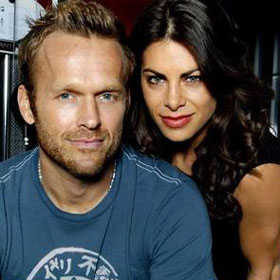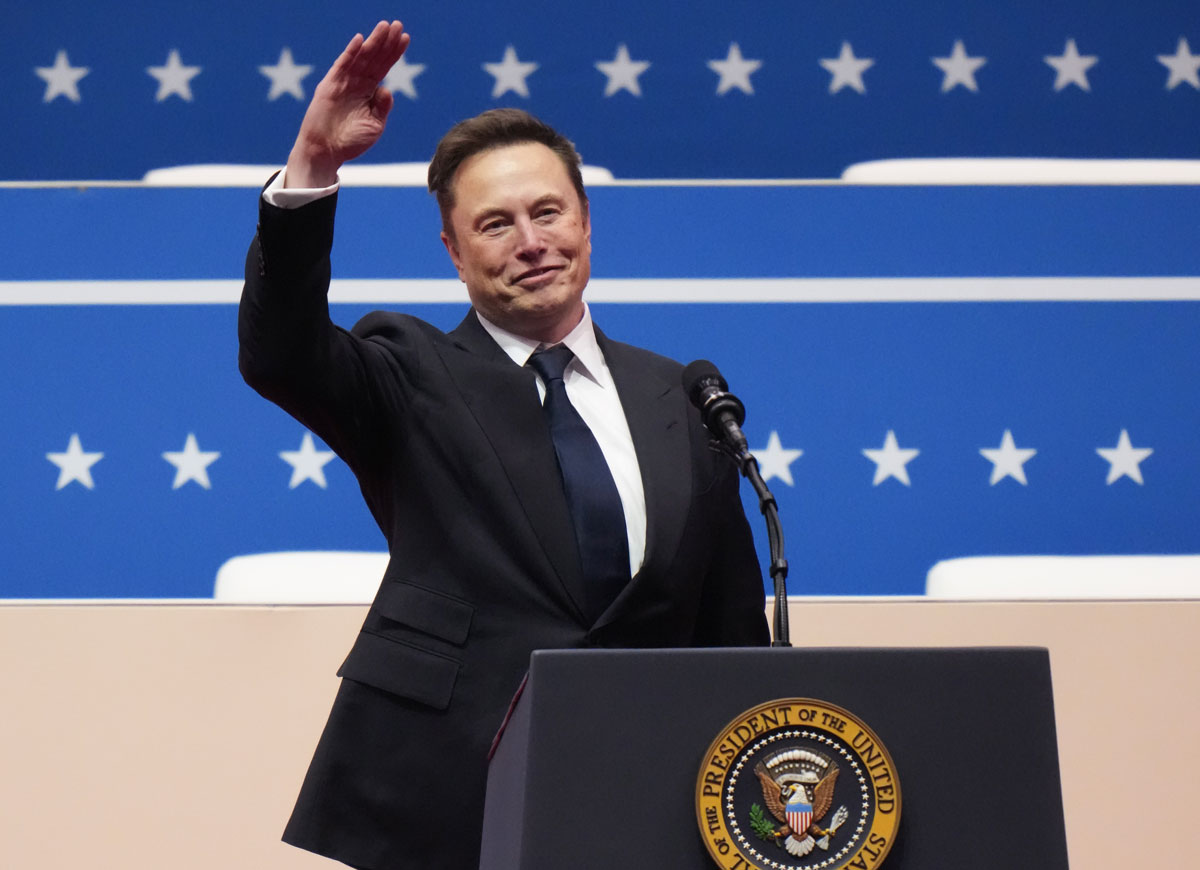Is 'Biggest Loser' For Real?
The Biggest Loser has caused a lot of controversy among fitness experts, medical professionals, as well as random people on the internet. It has been criticized for encouraging rapid weight loss, overtraining, and unhealthy diet practices, but also praised for addressing the issue of obesity. In my opinion, the show needs not to be taken completely literally – it is a dramatization of a real-life issue, and not an accurate portrayal of healthy weight loss. However repetitive it may be (each of the contestants has only one or two things to say during interviews, which they repeat as often as necessary to keep the episodes an hour and a half long,) it has done a lot of good in terms of raising awareness and inspiring others. However, people in real life cannot expect the same results, or even believe that the results they see on the show are completely accurate.
The makers of the show aim to make it as dramatic as possible, but they do this at the expense of depicting healthy weight-loss, and of promoting a fair competition. The huge amount of weight the contestants lose, sometimes 20 or 30 pounds per week, cannot possibly correspond purely with body fat. There is a lot of ambiguity, as such a large weight loss could indicate dehydration, or even loss of body tissues or muscles. As first-season winner Ryan Benson said in his blog, “I wanted to win so bad that the last ten days before the final weigh-in I didn’t eat one piece of solid food! I wore a rubber suit while jogging on the treadmill, and then spent a lot of time in the steam room. In the final 24 hours I probably dropped 10-13 lbs in just pure water weight.” The Biggest Loser could easily rectify this by calculating body fat percentage rather than weight each week, which would not only render extreme and unhealthy methods such as intentional dehydration and starvation impractical, but also give the world a more accurate presentation of weight-loss. As it is, the winner may as well be crowned “Most Dehydrated Person,” rather than Biggest Loser. However, real people, without the motivation of “weigh-ins,” aren’t going to emulate this behavior. What is shown on TV is a committed exercise regimen and a healthy diet, which are undeniably good things.
The thing that scares me most about the show are the excessively intense workouts, facilitated by dedicated, but sometimes borderline verbally abusive trainers. Sure, its nice to have a trainer to ‘push’ you, especially if (like me,) you stop running once your ipod stops entertaining you. However, when the trainer screams and swears at contestants, even as they collapse in tears and waves of nausea, they are going too far. Ashley, a contestant this season said of trainer Jillian Michaels, "it sorta gives her… like…. internal joy when she sees us puking." Making a group of morbidly obese people, freshly arrived at the ranch, participate in a one mile race, or a stationary bike marathon is dangerous and pointless. Any doctor or fitness professional would recommend that people start slowly and build up in intensity. Maybe the first day could include a race to see who could walk across a room the fastest, or who could time their breaks between sets with 5-pound weights most optimally.
In this show, everything is done as extremely as possible. During a recent challenge, the contestants had to climb up a continuously moving ladder above a pool. Whichever contestant did not fall into the pool would win. After over two hours, with two contestants left, one of them gave up, saying "screw it" as he stopped climbing and fell into the pool. Afterward, he was chewed out by Bob-the-Trainer in a motivational lecture, the main point of which was to "never give up." This pretty much captures the philosophy of the show. The level of perseverance expected on the show is unlikely for most people, who are not only without the personal attention of the most sought after trainers in the nation, but also don’t have the motivation of a quarter of a million dollars. However, the concept of hard work, diet, and exercise as being the only real solution to obesity is refreshing coming from the weigh-loss industry, which has done little more than market countless “effortless,” ineffective and misleading diet pills.
With a viewing audience of 7.5 million, Biggest Loser has a lot of influence, especially considering the size (no pun intended) of the obese population of America. They have used this power in a positive way in endorsing their "pound for pound" challenge, in which sponsors pledge a pound of food to Americans in need for every pound of weight lost by dieters. However, the TV network is clearly much more motivated by money, and the extent to which weight loss products are endorsed by the show is unsurpassed by anything I have ever seen on TV, perhaps barring infomercials. This is product placement at its finest- the camera constantly zooms in towards the logos on the contestant’s shorts, a box of Total, a water filter, etc. During interviews, the contestants sometimes stare blankly ahead, clearly reading off of cards, and talking about things like “Jenny O Extra Lean Ground Turkey Breast.” Before commercial breaks, a Biggest Loser DVD, cookbook, wii fitness game, and some protein mix are often advertised. This show is very smart financially- they make money from the brands advertised during commercial breaks, including the logical combination of Friskies and Pop-Tarts, and also from brands advertised during episodes.
One good thing about the show is its recognition of such a common, yet rarely talked about disease. The weight-loss industry constantly markets products to the overweight or slightly obese (this phrase may be oxymoronic), yet rarely are the morbidly obese ‘targeted,’ I assume because the industry has deemed them, as a whole, too far gone for progress. While the show promotes a lot of products, these products are, at worst, harmless, and at best, actually helpful (as opposed to the zillions of diet pills and shady herb blends currently on the market.) Its message is a positive one, and however misled its methods or repetitive and predictable its storylines, it should be applauded for putting something relevant and socially conscious on the reality TV menu. Yes, the show has clear flaws, but I would imagine it is doing much more good than harm. It isn’t only about its 20 or so individual contestants, but rather about 34% of Americans, and their potential to change their lifestyle at any point.
Biggest Loser represents a strange fusion of celebrity and anonymity- it publicizes the very personal experiences of its contestants with a very stigmatized problem, which is usually hidden or kept private. "Biggest Loser," by result of its popularity, has the possibility to facilitate discussion, and put obesity on the map as an important social issue. The idea of formerly obese people being treated like heroes, even being greeted with parades, is a big change from reality, but could lead to interesting possibilities. Watching the show left me with some questions: Why shouldn’t the obese be rewarded financially for becoming healthier, not just on reality TV, but in reality? With a national estimate of 147 Billion spent last year treating obesity-related diseases, why shouldn’t our government take a cue from Biggest Loser and offer some financial incentives to motivate weight loss?
The truth is, insignificant government regulation isn’t going to stop obesity. Getting fried foods taken out of schools isn’t going to help if kids go home and eat deep-fried pizzas, and so the Biggest Loser could be a ground breaking initiation of a positive-reinforcement campaign to actually encourage people to lose weight, rather than simply telling them that they need to. Until the government stops commercially subsidizing food industries, including the beef industry, dairy industry, and corn industry (whose most popular product is good old high fructose corn syrup,) not much will change. Maybe if Michelle Obama looked to “the Biggest Loser” for inspiration, her “Let’s Move” campaign could be more effective.
�
2 Comments
Leave a comment
RELATED ARTICLES
Get the most-revealing celebrity conversations with the uInterview podcast!






i have a better solution—the government should outlaw obese people from buying any print media BUT the daily mail, people, us weekly, vogue, etc. the government should also send skinny officers to every obese person's home and rig their televisions to show ONLY topmodel. after a while, the obese will become anorexic or bulimic.
That's so messed up! Seriously, I'm sure the best way to do that is make obese people anorexic or bulimic.
Was that suppose to be funny? Because it is just rude and ignorant of those diseases that affect people worldwide.